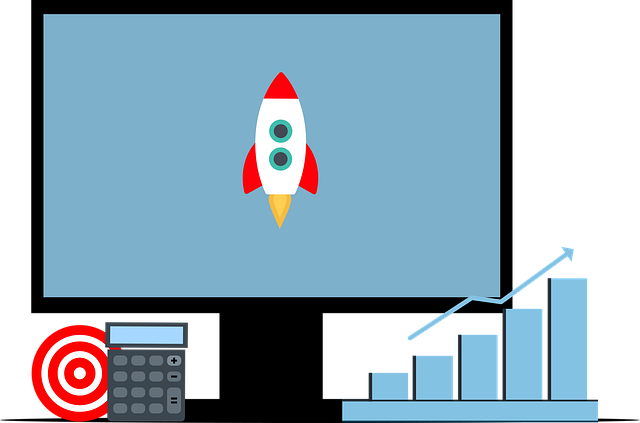AI contract automation and AI-generated food blog content are revolutionizing business processes and content creation. By leveraging advanced algorithms and machine learning, AI streamlines agreements, reduces human error, and increases efficiency, especially in the food industry. This technology automates repetitive tasks like plagiarism checks, copyright compliance, and SEO optimization, allowing creators to focus on high-quality output. However, challenges like data security, bias, and transparency must be addressed through collaboration between developers, legal experts, and ethicists to ensure responsible AI integration, particularly in highly regulated sectors.
“Explore the revolutionary potential of AI business smart contract automation, a game-changing technology transforming how industries manage agreements. This article delves into the transformative power of AI in streamlining contracts, enhancing efficiency across sectors. From understanding the fundamentals to examining its impact on traditional processes, we uncover how AI-generated content can navigate complex challenges and ethical considerations. Unlocking new possibilities, this exploration aims to provide insights for businesses embracing the future of smart contract automation.”
- Understanding AI Contract Automation: Unlocking Efficiency in Business Processes
- The Impact on Industries: Transforming Traditional Contracts with AI
- Challenges and Ethical Considerations: Navigating the Future of Smart Contracts
Understanding AI Contract Automation: Unlocking Efficiency in Business Processes

AI contract automation is revolutionizing business processes by leveraging advanced algorithms and machine learning to streamline and optimize agreements between parties. This technology goes beyond traditional automation, as it enables intelligent interpretation and execution of smart contracts, reducing human error and increasing efficiency. By automating repetitive tasks such as data entry, verification, and enforcement, businesses can save significant time and resources while minimizing the risk of fraudulent activities.
In the context of AI-generated food blog content, this technology can be utilized to streamline the publishing process. Imagine a system that automatically checks for plagiarism, ensures compliance with copyright regulations, and even optimizes content for search engines, all without requiring manual intervention. This level of automation not only enhances productivity but also ensures high-quality output, allowing creators to focus on crafting engaging content rather than administrative tasks.
The Impact on Industries: Transforming Traditional Contracts with AI

The integration of AI into business smart contract automation is a game-changer, revolutionizing the way traditional contracts are managed across various industries. By leveraging AI capabilities, businesses can streamline processes that were once manual and time-consuming. For instance, in the food industry, AI-generated content for blog posts or marketing materials can enhance efficiency while ensuring consistent quality. This technology enables automated contract analysis, identifying key clauses, and evaluating risks, leading to faster decision-making.
AI’s impact extends beyond speed and accuracy; it also promotes transparency and reduces human error. Smart contracts, powered by AI, can automate repetitive tasks, such as data entry or document verification, minimizing the potential for mistakes. This transformation is particularly significant in sectors like food supply chain management, where efficient contract handling can optimize resource allocation and ensure compliance with regulations, ultimately contributing to a more robust and resilient business environment.
Challenges and Ethical Considerations: Navigating the Future of Smart Contracts

As AI continues to revolutionize various industries, its integration with smart contracts presents a promising future for business automation. However, navigating this evolving landscape isn’t without challenges and ethical considerations. One primary concern is ensuring the security and integrity of AI-generated data within smart contracts. As these contracts are designed to execute automatically, any vulnerability in the AI system could have significant implications. For instance, if an AI model is trained on biased or incomplete data, it might lead to unfair or inaccurate decisions reflected in smart contracts, potentially causing substantial financial losses.
Moreover, the transparency and auditability of AI-driven processes are essential for building trust. Smart contract users must be able to understand and verify how AI makes its recommendations or decisions. This is particularly critical in highly regulated sectors where compliance and accountability are paramount. Balancing the benefits of automation with these challenges requires a collaborative effort from developers, legal experts, and ethicists to establish robust standards and guidelines for AI-business smart contract automation, ensuring its responsible development and adoption.
AI smart contract automation is revolutionizing business processes, offering unprecedented efficiency gains across industries. By leveraging AI capabilities, businesses can transform traditional contracts into streamlined digital agreements, reducing manual effort and minimizing errors. However, as this technology advances, ethical considerations and responsible implementation are crucial. As we navigate the future of smart contracts, ensuring transparency, security, and fairness will be key to harnessing the full potential of AI-generated solutions, including content creation for food blogs and beyond.
